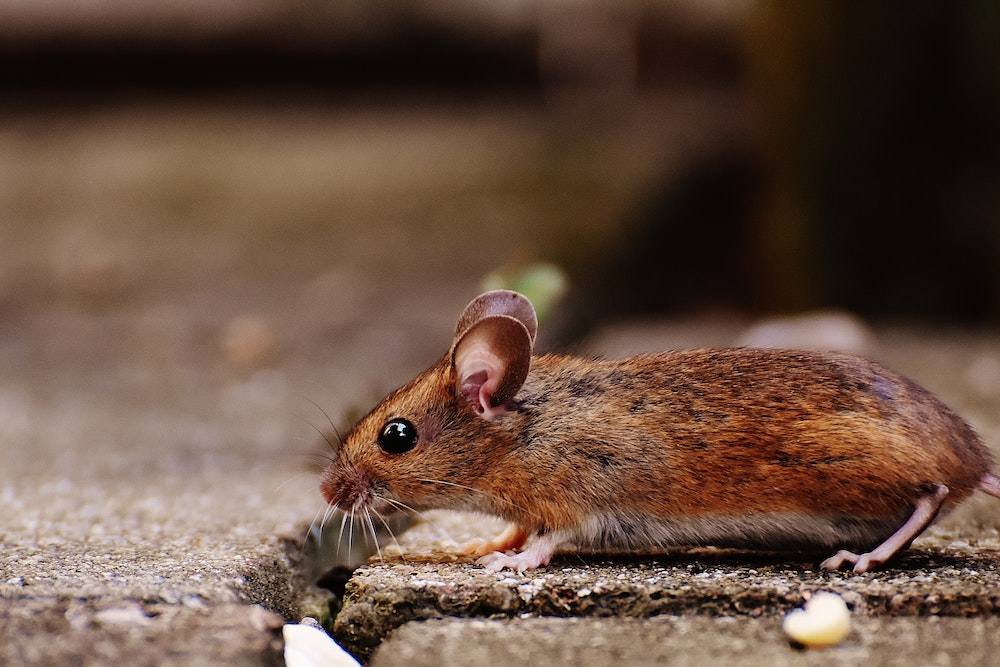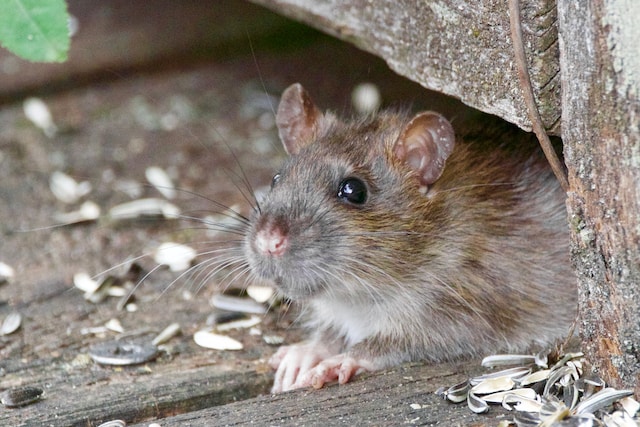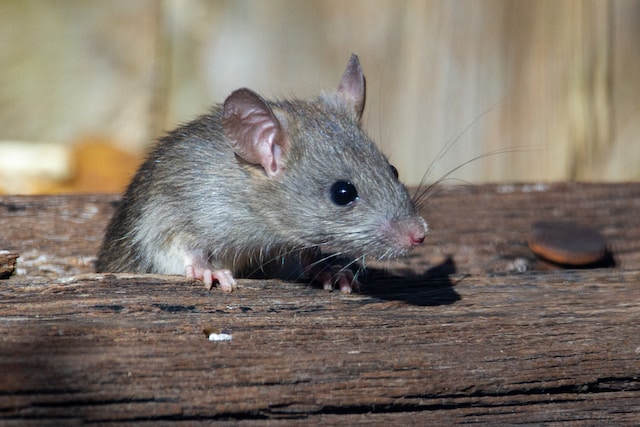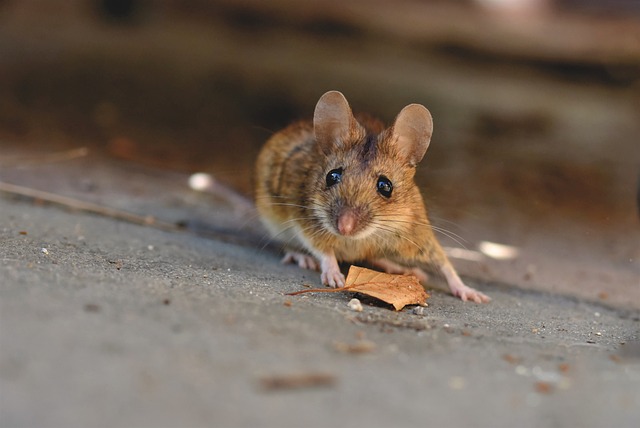
Mice and rats populate almost every corner of the world, with an estimated 7 billion rats scattered across the globe!
But what about rodents in North Carolina homes? How many of these pests frequently plague homeowners, and what species are common across the state?
Look at our blog to learn more about the pesky critters that may appear in your Raleigh home throughout the year!
Rats
Insects take the cake when it comes to population size and growth. In fact, there are almost 20 quadrillion ants on Earth as of 2022!
But rats can still hold their own! These pests rival human populations, and they’re ever-growing too. Many rat species can give birth to around 12 liters a year, having approximately 5-10 children in each litter.
Because of their massive growth, rats have spread throughout the United States, being some of the most populous rodents in North Carolina. While there are handfuls of species worldwide, only two have a real foothold in America: the Norway rat and the roof rat.
Norway Rats
Despite their name, Noway rats don’t originate from the European country and instead may have stemmed from China.
The Norway rat goes by many names beyond its European moniker. You may know them as brown, wharf, or sewer rats.

Their nickname isn’t just for show, either! These pests can swim long distances and even breathe underwater for a short period.
Norway rats are the largest rat species in the United States. Many can reach up to 16 inches long, including their tails.
While relatively lightweight, these pests are pretty hefty for rats! The largest of this species weighs up to two pounds!
With easy access to food, Norway rats can grow quite large. Norway rats populate open fields, alleyways, forests, or sewers. The rats may consume anything from berries and insects to discarded food or waste.
While common outside, Norway rats and other household rodents prefer to stick close to humans. Our homes offer large food stores and consistent heating and cooling throughout the year.
Common rodents in North Carolina, these pests can live in homes, apartment buildings, and commercial businesses. You’ll typically spot these pests on the ground near food or around their nests.
Because of their large size, Norway rats aren’t adept climbers. They prefer to stay grounded and safely nestled in their nests alongside their young.
Roof Rats
Norway rats can’t climb well, but roof rats can take up the slack! Typically found in roof rafters, attics, or lofts, roof rats can easily scale tall structures to look for food or build their nests. If you hear anything scampering overhead, you may have a roof rat infestation!

Also called black rats, you can usually differentiate roof rats from their larger relatives by their color and size. Roof rats can grow up to eight inches long but are even longer when incorporating their tail length,
While not as big as Norway rats, roof rats can still cause considerable problems in your home. They can destroy your attic insulation or wooden structures to craft nests or reach food.
Household rodents also notoriously defecate and urinate wherever they roam, leaving behind trails of harmful bacteria that can cause diseases like food poisoning, typhus, plague, and hantavirus.
If these pathogens seep into your insulation or spread throughout air vents, you and your family could become very ill. Plus, the damage they cause to your home may even let hot or cold air trickle out, raising your electricity bill significantly!
These rodents in North Carolina can similarly infest your outdoor items, using trees, fences, shrubs, or garden furniture as nesting areas. While less dangerous outdoors, they will migrate inside when the temperatures drop.
Mice in North Carolina
Rats are nuisance rodents in many Raleigh homes, but the common house mouse is a notorious pest many in our service area struggle with.
Tiny and wily house mice will fearlessly sneak around your home. Unlike rats, mice aren’t shy. They may avoid humans when they can, but they’re unafraid of running around when we’re awake and using our homes.

Their small statures allow them to squeeze into hard-to-reach spaces that larger rats couldn’t fit into. Small cracks and crevices on your home’s exterior are inviting doorways for mice looking for shelter and food.
Like rats, mice will leave urine and droppings wherever they roam, including your kitchen. Not only are their habits unsanitary, but they’re dangerous too. You may become ill if your food items are infected with mouse waste.
Mice aren’t picky, either. In face, these little pests are one of the most destructive rodents in North Carolina! They’ll eat almost anything stored in your pantry, cabinets, or trashcan. They can puncture flimsy packaging using their sharp teeth and claws to reach their tasty prize.
Any high-carb foods are delicacies for mice. Cookies, bread, pasta, granola bars, and cereal are foods that mice frequently consume. However, they won’t turn their nose to other nutritional sources in your pantry.
In the wild, mice regularly feast on fruits and seeds, so mice may sneak a bite of any apples, bananas, oranges, or berries you have uncovered on your kitchen counters. Fruit bowls are handy but are, unfortunately, hotspots for many rodents!
Similar to rats, mice can cause problems for your home. These common rodents in North Carolina may damage your home’s wiring– causing sparks, loss of power, or fire in extreme cases.
Don’t forget about the wear to your household possessions, either! Whenever rats or mice build their indoor nests, they’ll search for scraps of cloth, pillow fluff, or furniture stuffing, destroying your items in the process.
Removing These Rodents in North Carolina
Whenever you’re struggling with a severe rat or mouse problem, you can try a few options to minimize the damage they cause, control current infestations, and even prevent these pests from returning.
Storing easily-accessible food away will protect your groceries from contamination and could convince these furry pests to head back the other way. They may find another place to nest and eat if they have nothing to consume.
Remember to frequently tidy up your home and wipe down your appliances after cooking. Keeping your pantry and kitchen clean is also vital to prevent rodents. These pests are sneaky and search for hidden or forgotten food, like crumbs, discarded bites, or spills.
You could use a few DIY options to curtail an infestation, but contacting a professional pest control agency is often your best option. We can locate and eliminate any pesky pests sneaking into your home!
Our residential mouse pest control service at Innovate Pest Solutions can swiftly target the rodents in North Carolina taking over your home. Contact us today to learn more and schedule a service!





